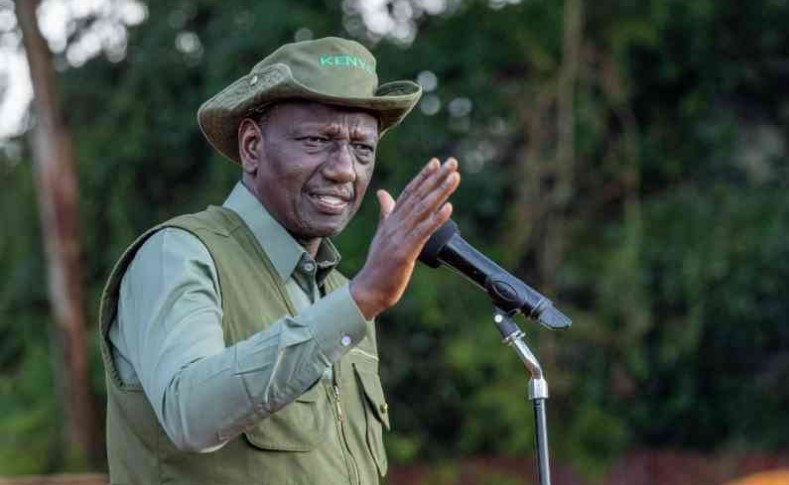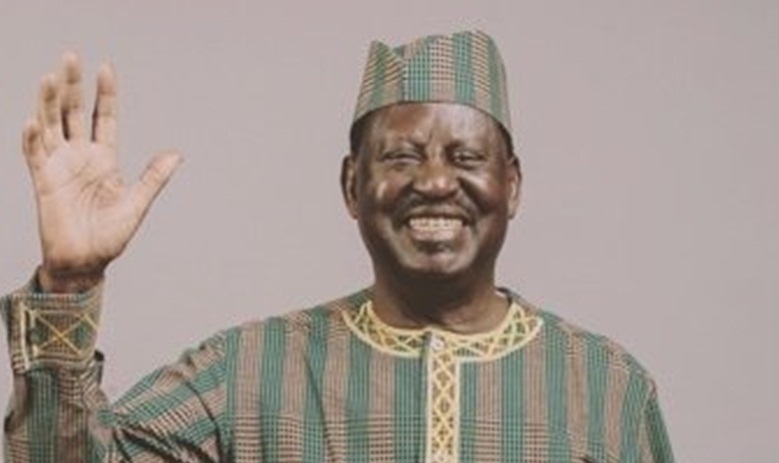Critics accused the president of choosing political cronies and departing from the previous practice of picking technocrats to be in charge of ministries…reports Asian Lite News
Kenyan President William Ruto dismissed almost all of his Cabinet ministers and promised to form a new government that will be lean and efficient following weeks of protests over high taxes and poor governance.
In a televised address, the president also dismissed the attorney general and said ministries will be run by their permanent secretaries.
Ruto said he made the decision after listening to the people and that he would form a broad-based government after consultations.
Kenya has seen three weeks of unrest in which protesters stormed into parliament on June 25 after a finance bill was passed that proposed tax increases. More than 30 people died in the protests, which have morphed into calls for the president to resign.
Ruto said the prime Cabinet secretary, Musalia Mudavadi, a key political ally, would remain in office.
He said the dismissals followed “a holistic appraisal of the performance” of the Cabinet and that the new government would help him “in accelerating and expediting the necessary, urgent and irreversible implementation of radical programs to deal with the burden of debt, raising domestic resources, expanding job opportunities, eliminating wastage and unnecessary duplication of a multiplicity of government agencies and slay the dragon of corruption.”
Ruto appointed 21 Cabinet ministers following his election in 2022. Critics accused the president of choosing political cronies and departing from the previous practice of picking technocrats to be in charge of ministries.
Three ministers resigned from their elected positions to take up ministerial appointments. Others lost the election and were seen as being awarded by the president with political appointments.
Several ministries including agriculture and health have been engulfed by corruption scandals involving fake fertilizer and misappropriation of funds.
The protesters accused the Cabinet of incompetence, arrogance and displays of opulence as Kenyans battle with high taxes and a cost of living crisis.
Demonstrators called for the president’s resignation even though he said he would not sign the finance bill that proposed higher taxes.
Ruto apologized for the “arrogance and show of opulence” by legislators and ministers and said he took responsibility and would speak to them.
He also announced austerity measures including the dissolution of 47 state corporations with overlapping functions to save money and the withdrawal of funding for the first lady’s office, among others.
Analyst and commentator Herman Manyora called the dismissal of the Cabinet a “bold move” that was necessary to quell the discontent in the country.
This is the first time a sitting president has dismissed Cabinet ministers under the new constitution. The last time a similar move occurred was in 2005 after a failed referendum when then-President Mwai Kibaki dismissed his ministers to assert his political authority.
Kenya police boss quits
Kenya’s police boss resigned Friday, the latest attempt by the country’s president to respond to growing concerns of police brutality in response to protests triggered by a proposed tax hike.
Protesters stormed parliament on June 25 after a bill was passed that proposed tax increases, forcing lawmakers to flee through an underground tunnel. Police responded by opening fire on protesters in the streets. The protests have morphed into calls for President William Ruto to resign.
Ruto has sought to respond to the social outcry with a series of steps. He withdrew the tax hike proposal and on Thursday he followed up by dismissing almost all of his Cabinet ministers. He vowed to form a new government that will be lean and efficient.
In his latest move Friday, Ruto accepted the resignation of inspector general Japhet Koome. The presidential office said the deputy, Douglas Kanja, would step in as acting inspector general.
The social unrest has played out in a country generally viewed as a regional leader in Africa due to its size and political stability, and which is a key ally of Western countries in the counterterrorism fight and other issues. Underlining its international role, 400 Kenyan police landed in violence-hit Haiti in recent weeks to lead a UN-backed multinational force. Underlying Kenya’s stature, President Joe Biden honored Ruto with a state dinner at the White House in May.
ALSO READ-Kenya’s president vows to act against police brutality














